
Induction cookers, also known as induction stoves or hobs, use electromagnetic induction to heat pots and pans directly. This technology offers precise control, energy efficiency, and safety. It is the only type of cooking that can tempt you away from gas.
1. What is induction cooking?
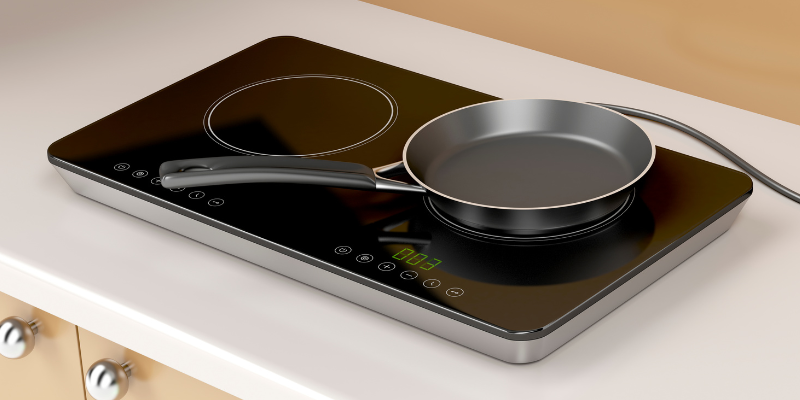
Induction cooking relies on electromagnetic fields to generate heat . Unlike gas or ceramic radiant hobs, induction stove heats the cookware directly rather than heating the stove first. It keeps your home remain cool, with no heat emanating from your cooktop.
2. How does induction cooking work?
When the induction cooker is turned on, an alternating current (AC) flows through the induction coil, creating a rapidly changing magnetic field. The magnetic field passes through the cooktop surface and induces an electric current (eddy current) in the ferromagnetic cookware placed on top. The eddy currents flow through the metal of the cookware, which has electrical resistance. This resistance causes the cookware to heat up directly due to the Joule heating effect.
3. Is induction cooking safe?
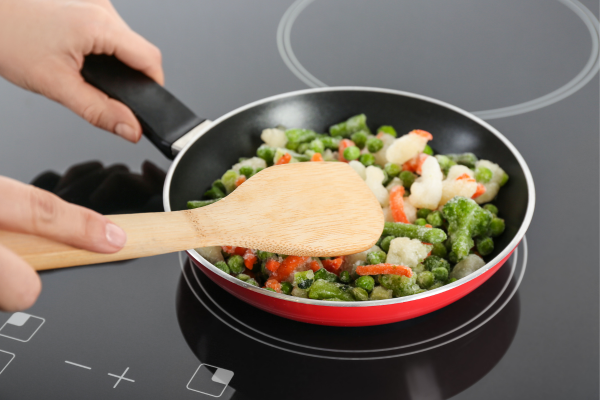
Yes, Induction cooking is considered to be safe for several reasons, including its design features, efficiency, and built-in safety mechanisms.
Cool Surface: Induction cooktops generate heat directly in the cookware through electromagnetic induction. The cooktop itself remains relatively cool to the touch, significantly reducing the risk of burns.
Precision and Control: Induction cooktops allow for precise temperature control, which reduces the risk of overheating and burning food
No Open Flame: Unlike gas stoves, induction cooktops do not use an open flame, which significantly reduces the risk of kitchen fires and gas leakage risk.
Safe for Children: The absence of an open flame and a cooler cooktop surface make induction cooking safer in households with children
4. What are the advantages of induction cooking?
Induction stoves are one of the most energy-efficient kitchen appliances because it makes pots and pans heated directly. There are several other advantages:
Energy Efficiency: Induction cookers are about 85-90% efficient in converting energy to heat, compared to gas stoves (40-50%).
Speed: Induction cookers heat up cookware quickly, reducing cooking times significantly.
Safety: The cooktop remains cool to the touch, reducing the risk of burns. It also has safety features such as auto shut-off if no cookware is detected
5. Is induction cooker better than gas?
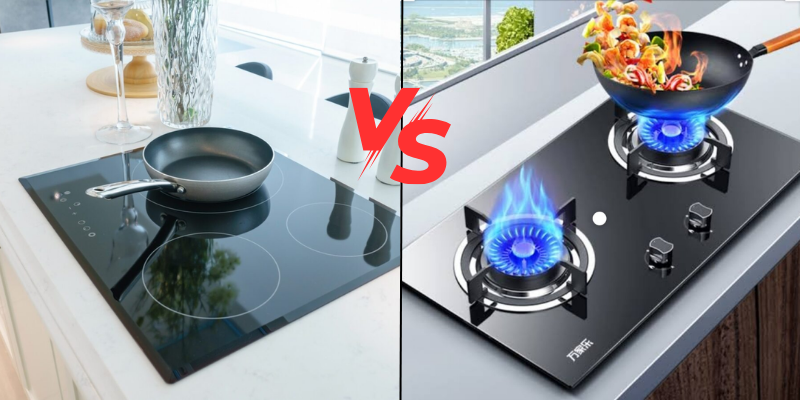
Induction is faster than other cooking technologies, boiling 1 litre of water in 3 minutes. Following are the basic differences between Induction stove Vs Gas Stove:
| Topic | Induction Stove | LPG Gas Stove |
| Energy Efficiency | – Higher Efficiency (85%-90%) – Low heat Loss |
– Lower Efficiency (40%-50%) – Higher Heat Loss |
| Speed of cooking | Faster | Slower |
| Safety | Cooler surface No open flame Automatic shut off Keeps kitchen cool | Open flame Gas Leak Keeps kitchen hot |
| Control & Precession | Precise temperature control instant adjustments, consistent and evenly distributed heat |
control is less precise and depends on manual adjustments Heat distribution can be uneven, affecting cooking quality |
| Environmental Impact | Cleaner Energy-an be generated from renewable sources No Emissions: Do not emit greenhouse gases during operation |
Fossil Fuel: Use fossil fuels, contributing to greenhouse gas emissions. Carbon Emissions: Burning LPG releases carbon dioxide and other pollutants into the atmosphere. |
| Cost | Initial Cost – Little higher than gas stove Operational Cost- Potentially lower operating costs | Initial Cost: Typically less expensive to purchase initially. Operational Cost: Depending on LPG prices and usage, operational costs can vary and might be higher over time. |
| Maintenance | Easy Cleaning: Smooth cooktop surfaces are easy to clean and maintain. Low Maintenance: Fewer parts and no open flame means less wear and tear. |
Cleaning: Burners and grates can be more challenging to clean. Maintenance: Regular maintenance is needed to check for gas leaks and ensure proper functioning. |
6. What pans to use on induction hob?
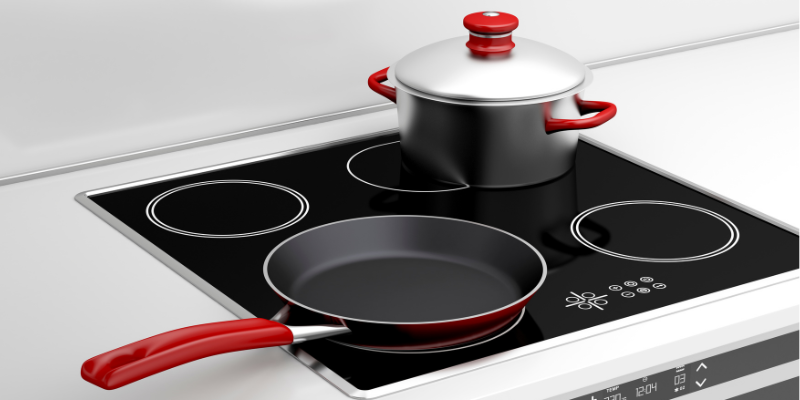
To be able to use with an induction cooker, your pots must have magnetic base. Simply look for the induction logo at the base of the pots or pans when you are making your selection. In other words, you only need proper cookware that contains iron or stainless steel and usually comes with a coil spring sign at the bottom, marking it fit for use on an induction cooker.
7. Is induction glass top easy to crack or scratch?
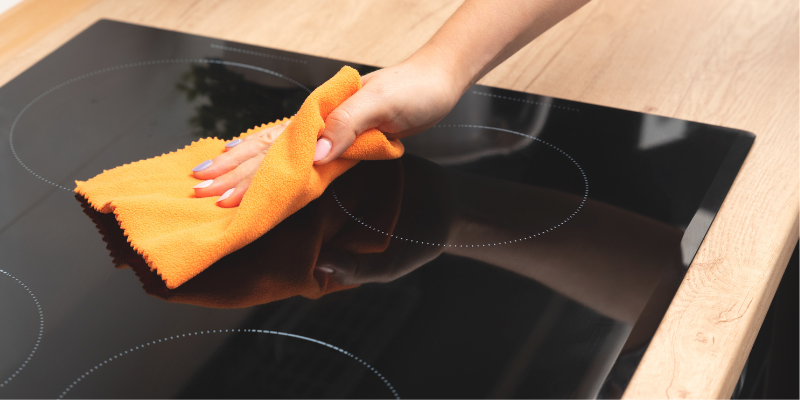
Induction glass is made of “ceramic glass” that’s very strong and can withstand high temperatures as well as sudden temperature changes. Scratching, however, can occur if one is careless.
8. Important things you should know before installation
You should check if you have a sufficient power supply and ensure direct power supply to the induction cooker. Sharing of power supply is not encourage as it will affect the performance of the induction cooker.
Ensure that you ask a qualify electrician for installation work. The power requirement for each induction cooker may be different, so always check before making your selection.